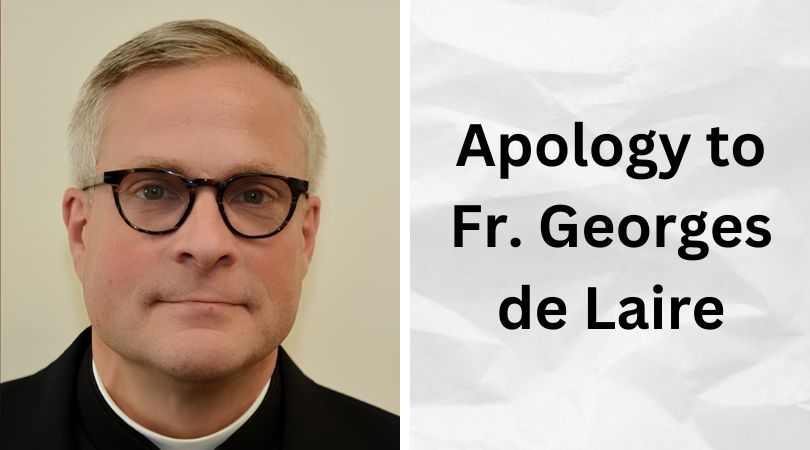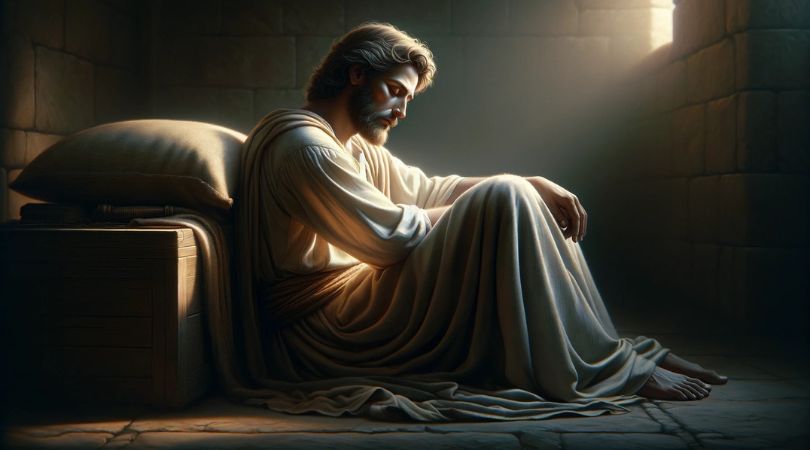Editor’s Note: This is an edited excerpt from Rev. Alban Butler’s 1866 edition of The Lives of the Fathers, Martyrs and Other Principal Saints, Vol. I.
St. Macarius of Alexandria
Saint Macarius, originally from Alexandria in Egypt, chose to dedicate his life entirely to God. In his youth, he left his worldly life and spent over 60 years in the desert, practicing intense penance and contemplation.
Around A.D. 335, Macarius first went to Thebais (Upper Egypt) to learn from and practice with masters known for their holiness. Seeking even greater spiritual perfection, he moved to Lower Egypt before A.D. 373.
In that region, there were three neighboring deserts: Scete [now known as Wadi El Natrun], named after a nearby town on the edge of Libya; the Cells, named for its abundance of hermit cells; and Nitria, a third desert named after a mountain and extending to the Nile’s western branch. St. Macarius had a cell in each of these deserts, but he primarily lived in the Cells. While in Nitria, he often gave advice to visitors.
In the Cells, each hermit had his own cell where he lived alone, except on Saturdays and Sundays when the hermits gathered in a church for communal worship and Communion. If someone was absent, it was assumed he was ill, and he would be visited by the others. When a new person arrived to join them, each hermit offered his cell and was willing to build a new one for himself. The cells were spaced out, so they were not visible to each other. The hermits’ work, like making baskets or mats, did not interrupt their continuous prayer.
Macarius was ordained as a priest in this community and was a prominent figure there. For seven years, he ate only raw herbs and pulses — the seeds of plants. For the next three years, he limited himself to four or five ounces of bread daily and used only a small amount of oil throughout the year. He had a strong physique that could endure severe hardships, and he was deeply committed to his spiritual exercises. Whenever he learned of a spiritual practice from others, he was eager to adopt it himself.
Drawn by the reputation of the Tabenna monastery under St. Pachomius, Macarius visited it in disguise before A.D. 349. Initially, St. Pachomius was hesitant to accept him due to the monastery’s rigorous practices. He eventually allowed Macarius, however, to join on the condition that he would adhere to all of its rules and mortification. Eventually, Pachomius discovered the stranger was the renowned Macarius. He thanked Macarius for his inspiring visit and asked him to return to his desert to pray for the monks at Tabenna.
On one occasion, Macarius accidentally killed a gnat in his cell. Regretting the missed opportunity to endure this discomfort, he moved to the marshes of Scete, known for their large, biting flies. He stayed there for six months, enduring their painful stings. His body was so swollen and covered in sores from the bites that he was only recognizable by his voice upon his return. Some sources suggest he undertook this extreme act to combat a temptation of the flesh.
St. Macarius faced many temptations, one of which was the thought of leaving his desert to serve the sick in Rome’s hospitals. He realized this was a subtle temptation of vanity, seeking to gain worldly admiration under the guise of charity. His humility helped him see through this deception. When this temptation became too persistent, he physically resisted by lying on the ground in his cell, refusing to move, and declaring to the evil spirits that they would have to drag him away. This act of resistance helped him overcome the temptation.
Another time, when faced with temptation, St. Macarius filled two large baskets with sand and carried them on his shoulders through the wilderness. When someone he knew offered to help, he simply said he was “tormenting his tormentor.”
Palladius, a Galatian monk and bishop, recounts that St. Macarius once sought to immerse himself for five days in uninterrupted heavenly contemplation. For the first two days, he experienced divine joy, but on the third day, he faced such severe demonic disturbances that he had to abandon his plan and return to his routine.
This experience highlighted the challenges contemplative people often face, including distractions and the necessity to attend to mundane tasks. It also showed that God sometimes withdraws his presence to remind them of their own frailty and that life is full of trials.
St. Macarius also had a vision in which he saw devils causing monks to become drowsy and distracted during prayer. Some monks resisted these temptations, while others succumbed. Macarius responded with tears and advised the monks to be more vigilant during prayer.
In A.D. 375, due to his steadfast adherence to the Catholic faith, St. Macarius was exiled at the instigation of Lucius, the Arian patriarch of Alexandria. The saint died in A.D. 394, a date confirmed by the historical accounts of Palladius. The Latin Church remembers him on Jan. 2.















